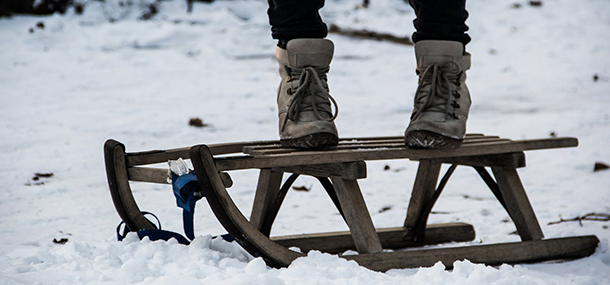
As temperatures fall and the snowflakes start accumulating, most of us want to stay warm and cozy indoors. But there are many fun winter sports and recreational activities that can take us and our children outside during this cold season. It is estimated that up to 75% of children participate in at least one kind of snow-related activity each winter, like sledding, snowboarding, skiing and snowmobiling. Part of the appeal of these activities is that it can be exciting, moving at fast speeds on the snow and ice. However, with these high speeds, along with a relative lack of control and the potential for collisions or crashes, it is not surprising that many children are injured in snow-related activities. Falls or crashes may result in sprains, fractures, brain injuries and even death.
Sledding is a popular winter activity for our kids, and many of us have fond memories of our own bundled up rides down snowy hills as children. There are, however, over 20,000 sledding-related injuries treated in emergency departments every year. The most common type of injuries are fractures, cuts and scrapes, but the most commonly injured part of the body is the head. Often these injuries can be severe, requiring treatment in an intensive care unit with permanent disability or even death. Traumatic brain injury is the leading cause of death from snowboarding or skiing accidents.
The staff in the Radiology Department at Cincinnati Children’s wants you and your children to know how to be safe during winter sports and activities. Sledding should only be done under adult supervision and on gentle slopes clear of trees or other obstacles. Helmets should be worn at all times. In addition to the proper protective gear, keeping warm is also important. Dress warmly with winter coat, hats, gloves and slip-resistant boots.
Please take the time to make sure your children stay safe. We want them to be able to share their own happy winter memories for years to come.
Contributed by Dr. Christopher Anton and Dr. Mike Aquino and edited by Catherine Leopard (CCLS).